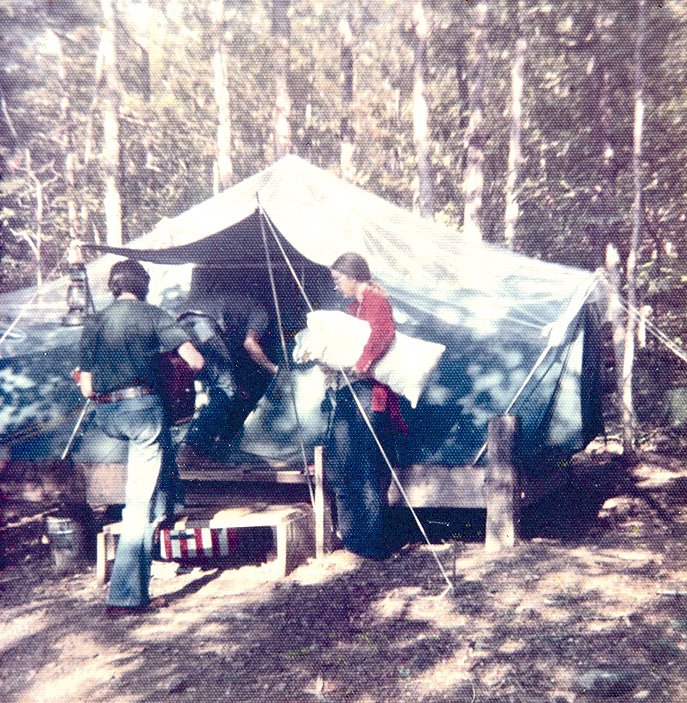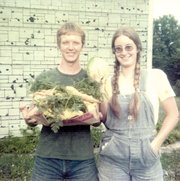Cindy Arsaga is the definition of the back-to-the-land movement of the 1970s.
In 1975, Arsaga -- then Cindy Davidson -- and a group of like-minded friends from Little Rock bought a piece of land off Slow Tom Road near the community of Aurora.
FAQ
‘Hipbillies and Hillbillies’
With Jared Phillips
WHEN — Noon Wednesday
WHERE — Shiloh Museum of Ozark History in Springdale
COST — Free
INFO — 750-8165
"We pitched our tents in the middle of nowhere and thought we were going to build houses," remembers Arsaga. "We went in the spring, and by October, one of the old-timers we'd gotten to know invited us to come live at his house because we were going to freeze to death."
Seven people, two dogs and a couple of cats moved in, and the three women in the group drove into Fayetteville to work at Brough Commons on the University of Arkansas campus "while the guys stayed out in the woods and pretended to build a house."
It wasn't long before the experiment was over, and everyone went their separate ways. Arsaga stayed in Fayetteville, worked as a nurse for 13 years, married Cary Arsaga and created Arsaga's Coffee Roasters in 1992.
By back-to-the-land standards, Arsaga might be considered a failure. She didn't stick it out as a homesteader. But by author Jared Phillips' reckoning, she disproves the "traditional Ozark narrative" of shiftless hippies. She worked hard and built a life in Fayetteville.
"For the most part, all these people became integral to the success of their community," says Phillips, who will speak Wednesday at the Shiloh Museum of Ozark History in Springdale. "Back-to-the-landers didn't start Fayetteville Farmers' Market, for example, but they've been the central core of farmers for decades now. ... They formed cooperative schools like Headwaters School in Madison County.
"In Fayetteville, you could always tell the difference between back-to-the-landers and city hippies [because] the back-to-the-landers defined themselves by work."
Now in his 30s, Phillips grew up in the Sonora community east of Springdale -- back when it was rural -- and always heard "all these bad stories about [the back-to-the-landers]. And I thought, these don't make any sense about the people I know. I've yet to see any of them wander around naked or try to slip heroin into my coffee or induct me in the ways of Satanic rituals."
On a break from another project, he thought he'd do a little research and visited the Shiloh Museum -- where the project blossomed into a book that will be published next year by University of Arkansas Press. "Hipbillies: Back-to-the-Landers in the Arkansas Ozarks" will surprise many readers, Phillips thinks, with both the number of back-to-the-landers there were and how their stories unfolded.
Phillips says at any given time from 1968 to 1982, some 4,000 to 6,000 back-to-the-landers were spread across the Arkansas Ozarks -- and many, many more in Missouri -- when readers might think "there were just a couple of oddballs." They were young -- in their late teens and early 20s -- well-educated and from "solid to upper middle-class backgrounds." They came to the Ozarks not to drop out, he says, but to start over. They understood, he explains, that protests hadn't changed the world, and they wanted to "restructure society, go back to the land, back to the beginning. They were revolutionaries, not trying to cordon themselves off from society, but to create a foundation for a new society."
Arsaga says although some of her beliefs have changed, "that spirit stayed with me [and] it was just a bonus I ended up in Fayetteville. Fayetteville was a special place where people just kind of landed."
NAN What's Up on 08/12/2016


